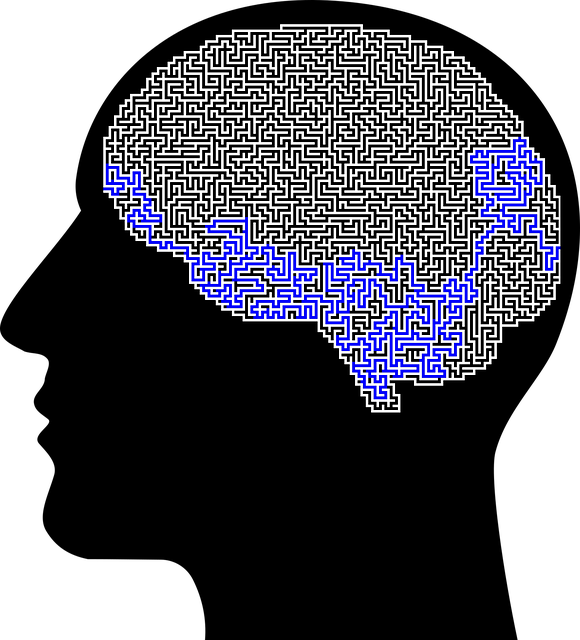Highlands Ranch Oppositional Defiance Disorder (ODD) therapy prioritizes risk assessment and harm minimization through comprehensive evaluations, tailored interventions, and holistic approaches. Therapists focus on emotional intelligence enhancement, mood management skills training, and evidence-based practices to improve outcomes. A structured Harm Minimization Plan, combined with open communication, monitors symptoms and adapts strategies based on client needs. Community engagement, advocacy, and awareness campaigns further support individuals with ODD in Highlands Ranch, fostering a more supportive environment for their well-being.
In Highlands Ranch, Oppositional Defiant Disorder (ODD) therapy requires a nuanced approach due to its unique complexities. This article explores risk assessment and harm minimization planning, crucial components in effective ODD treatment. We delve into understanding risk assessment in mental health, offering insights tailored to ODD. Additionally, we provide practical guidance on creating harm minimization plans, implementing strategies, and continuously evaluating progress. By adhering to these principles, therapists can enhance their Highlands Ranch ODD therapy outcomes.
- Understanding Risk Assessment in Mental Health
- Oppositional Defiant Disorder (ODD): Unique Considerations
- Creating a Harm Minimization Plan for ODD Therapy
- Implementing Strategies and Continuous Evaluation
Understanding Risk Assessment in Mental Health

In the realm of mental health, risk assessment is a cornerstone of effective therapy and harm minimization planning, especially for conditions like Oppositional Defiant Disorder (ODD) in Highlands Ranch. It involves meticulously evaluating an individual’s current state, identifying potential risks, and developing strategies to mitigate them. This process is crucial for creating a safe environment, fostering resilience, and promoting positive outcomes in treatment. By thoroughly assessing risk factors, therapists can tailor interventions that address specific challenges, such as irritability, anger management issues, and difficulties in social interactions, which are common symptoms of ODD.
Understanding the unique dynamics of each patient’s life experiences, including family, school, and peer relationships, is vital. This holistic approach to risk assessment enables professionals to implement evidence-based practices like enhancing emotional intelligence and teaching effective mood management skills. Furthermore, public awareness campaigns development can play a significant role in reducing stigma and encouraging early intervention, ultimately contributing to better outcomes for individuals grappling with mental health challenges, such as ODD.
Oppositional Defiant Disorder (ODD): Unique Considerations

Oppositional Defiant Disorder (ODD) presents unique challenges in risk assessment and harm minimization planning, particularly for families seeking therapy in Highlands Ranch. Children and adolescents with ODD often struggle with mood regulation, defiance, and anger management, which can significantly impact their relationships and overall well-being. When addressing these behaviors, therapists must go beyond surface-level interventions to focus on underlying emotional dysregulation.
Highlands Ranch Oppositional Defiance Disorder therapy should prioritize the development of coping skills, such as mindfulness meditation and social skills training. These strategies empower individuals to navigate triggers effectively, improve impulse control, and foster healthier interactions with peers and authority figures. By integrating evidence-based practices, therapists can help clients transform their responses to stressors, leading to better outcomes and a more harmonious environment in both home and school settings.
Creating a Harm Minimization Plan for ODD Therapy

Creating a Harm Minimization Plan is an essential step in providing effective Oppositional Defiance Disorder (ODD) Therapy in Highlands Ranch. This proactive approach ensures that mental health professionals are prepared to address potential risks and promote positive outcomes for clients. The plan should be tailored to each individual’s unique needs, focusing on strategies to build inner strength and resilience. By implementing structured interventions, therapists can guide clients towards healthier coping mechanisms and improve their overall well-being.
A comprehensive harm minimization strategy involves risk management techniques, such as identifying triggers, teaching emotional regulation skills, and establishing clear boundaries. These measures aim to prevent escalating behaviors while fostering a safe therapeutic environment. Additionally, encouraging open communication allows professionals to quickly adapt strategies, ensuring the plan remains effective and aligned with the client’s evolving needs.
Implementing Strategies and Continuous Evaluation

Implementing effective strategies for risk assessment and harm minimization requires a multifaceted approach tailored to individual needs. In the context of Highlands Ranch Oppositional Defiance Disorder Therapy (HR-ODD), professionals must employ evidence-based techniques to address underlying causes and prevent escalating behaviors. This involves not only identifying potential risks but also designing interventions that promote positive coping mechanisms and enhance mental wellness. Regular assessment and adjustments are crucial; therapy plans should be flexible, allowing for continuous evaluation and refinement based on client progress.
The process encompasses ongoing monitoring of symptoms, environmental factors, and personal circumstances to ensure the strategy remains relevant and effective. By integrating Mental Health Policy Analysis and Advocacy, professionals can push for systemic changes that support individuals with HR-ODD and reduce barriers to care. Moreover, leveraging Mental Wellness Podcast Series Production as an educational tool can foster community engagement and promote Mental Illness Stigma Reduction Efforts, creating a more supportive environment for those facing these challenges.
Risk assessment and harm minimization planning are essential components of effective Highlands Ranch Oppositional Defiance Disorder (ODD) therapy. By understanding the unique considerations of ODD, therapists can create tailored plans that address specific challenges. Continuous evaluation and implementation of strategies ensure a dynamic approach, fostering positive outcomes for clients navigating this complex disorder. This structured process is vital in delivering high-quality care, enabling individuals to overcome ODD and lead fulfilling lives.














